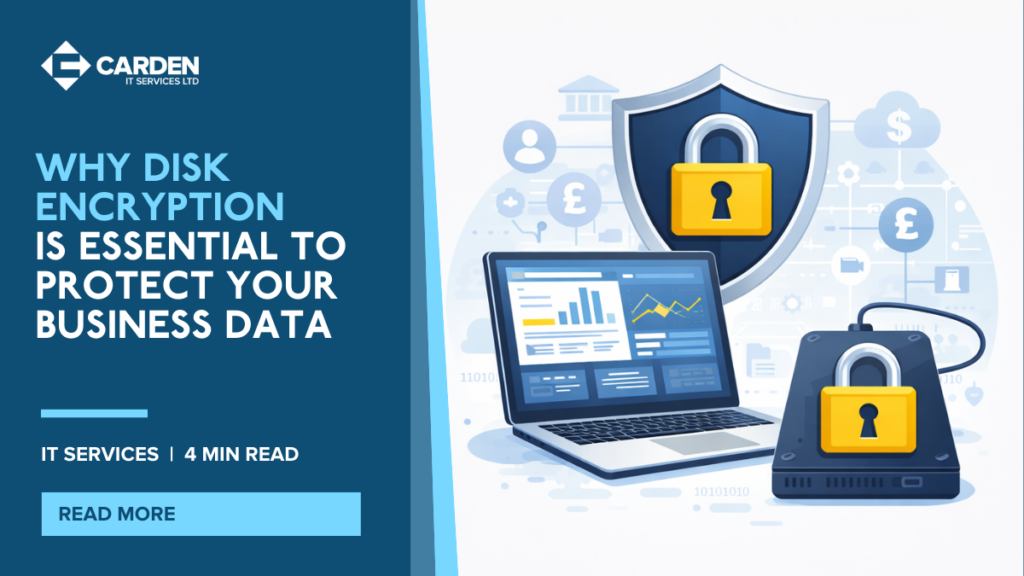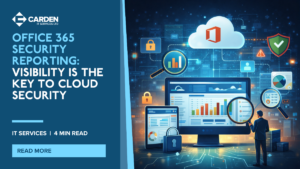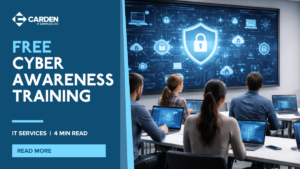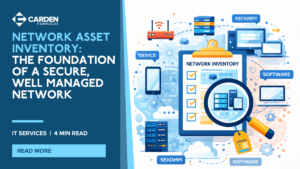What would happen to your business if sensitive data was stolen from a lost or stolen laptop?
In today’s digital world, a lost or stolen device can lead to a serious data breach, especially if sensitive information such as financial data or customer details is not encrypted. Disk encryption is a simple but powerful way to ensure that your data remains secure, even if your devices fall into the wrong hands. In this blog, we will explore the importance of disk encryption and how it helps protect your business data.
What Is Hard Disk Encryption?
Hard disk encryption is the process of converting data into an unreadable format, which can only be decrypted with the correct encryption key. This prevents unauthorized users from accessing your sensitive information, even if they manage to steal your device. Encryption is crucial for businesses storing sensitive data on their devices, as it helps mitigate the risk of data breaches caused by lost or stolen laptops.
Most modern devices, such as Windows and macOS machines, come with built-in encryption programmes. Windows offers BitLocker, while macOS uses FileVault. Disk-level encryption is considered the most secure option as it protects the entire device, whereas File Level Encryption (FLE) only encrypts individual files.
How Does BitLocker Work?
BitLocker is included with all new versions of Windows Pro and provides full disk encryption for your device. It works in conjunction with your machine’s Trusted Platform Module (TPM), a hardware processor that stores the encryption key. The TPM ensures that only authorized devices can access the data on your drive. This prevents attackers from stealing your drive and mounting it on another machine to access the data.
When a machine is powered on, BitLocker checks the TPM to verify that the device is authorised to access the data. The system is encrypted when locked or shut down, and only unlocked when the correct password is entered. New files saved to protected drives are automatically encrypted, ensuring that your business data remains secure at all times.
Should I Encrypt My Drives?
Yes, if your business stores sensitive information, it is essential to encrypt your drives. Failing to do so leaves your business open to significant risks. If a device is stolen and the data is not encrypted, the thief can access the data and cause considerable harm. This may include leaking sensitive information or selling it on the dark web.
The Information Commissioner’s Office (ICO) has levied heavy fines on organizations that suffered data breaches due to inadequate protection, such as the lack of encryption. Encrypting your drives not only helps protect your data but also ensures compliance with data protection regulations.
Key Benefits of Disk Encryption
| Benefit | Explanation |
|---|---|
| Protects Sensitive Data | Encryption ensures that even if a device is stolen, the data remains unreadable without the decryption key. |
| Prevents Data Breaches | By encrypting data, you reduce the risk of sensitive information being leaked or sold on the dark web. |
| Ensures Compliance | Encrypting your drives ensures your business meets legal requirements and avoids fines from regulatory bodies like the ICO. |
Best Practices for Disk Encryption
- Enable BitLocker or FileVault on all devices storing sensitive data.
- Ensure all new files are automatically encrypted as they are saved.
- Regularly update passwords to ensure only authorized users have access to encrypted devices.
- Use strong encryption algorithms and keys to further secure data.
How Carden IT Services Can Help with Disk Encryption
At Carden IT Services, we help businesses implement disk encryption as part of our comprehensive cybersecurity offerings. Our team of experts can audit your network to identify sensitive data and implement BitLocker where required to protect your business-critical information. Disk encryption is just one of the ways we help businesses stay secure. We also offer network security, cloud security, and endpoint protection to provide a layered defense against cyber threats.
Take Action Today to Protect Your Business Data
If you’re ready to enhance your business’s security by implementing disk encryption, contact Carden IT Services today. Our team can guide you through the process of encrypting your devices, ensuring your sensitive data remains secure and protected. Learn more about how our cybersecurity services can help safeguard your business.




